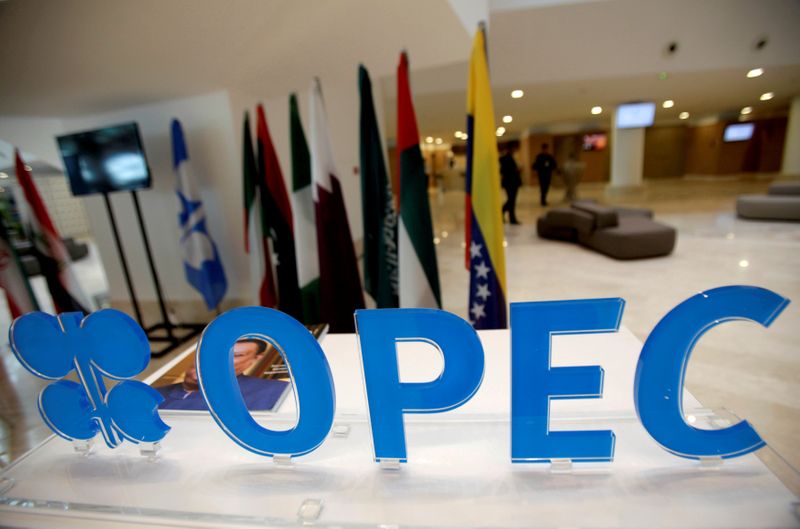By Alex Lawler, Rania El Gamal and Olesya Astakhova
LONDON/DUBAI/MOSCOW (Reuters) - OPEC and Russia on Thursday agreed to a modest oil output increase from January by 500,000 barrels per day but failed to find a compromise on a broader and longer term policy for the rest of next year, four OPEC+ sources told Reuters.
The increase means the Organization of the Petroleum Exporting Countries and Russia, a group known as OPEC+, would move to cutting production by 7.2 million bpd, or 7% of global demand from January, compared with current cuts of 7.7 million bpd.
The curbs are being implemented to tackle weak oil demand amid a second coronavirus wave.
OPEC+ had previously been expected to extend existing cuts until at least March.
But after hopes for a speedy approval of anti-virus vaccines spurred an oil price rally at the end of November, several producers started questioning the need to keep such a tight rein on oil policy, as advocated by OPEC leader Saudi Arabia.
OPEC+ sources have said Russia, Iraq, Nigeria and the United Arab Emirates have all to a certain extent expressed interest in supplying the market with more oil in 2021.
Four OPEC+ sources said the group would now gather every month to decide on output policies beyond January and monthly increases are unlikely to exceed 500,000 bpd.
OPEC+ has to strike a delicate balance between pushing up oil prices enough to help their budgets but not by so much that rival U.S. output surges. U.S. shale production tends to climb above $50 a barrel.
Monthly meetings by OPEC+ will make price moves more volatile and complicate hedging by U.S. oil producers.

Crude prices were little changed after the OPEC+ decision at around $48 a barrel. [O/R]